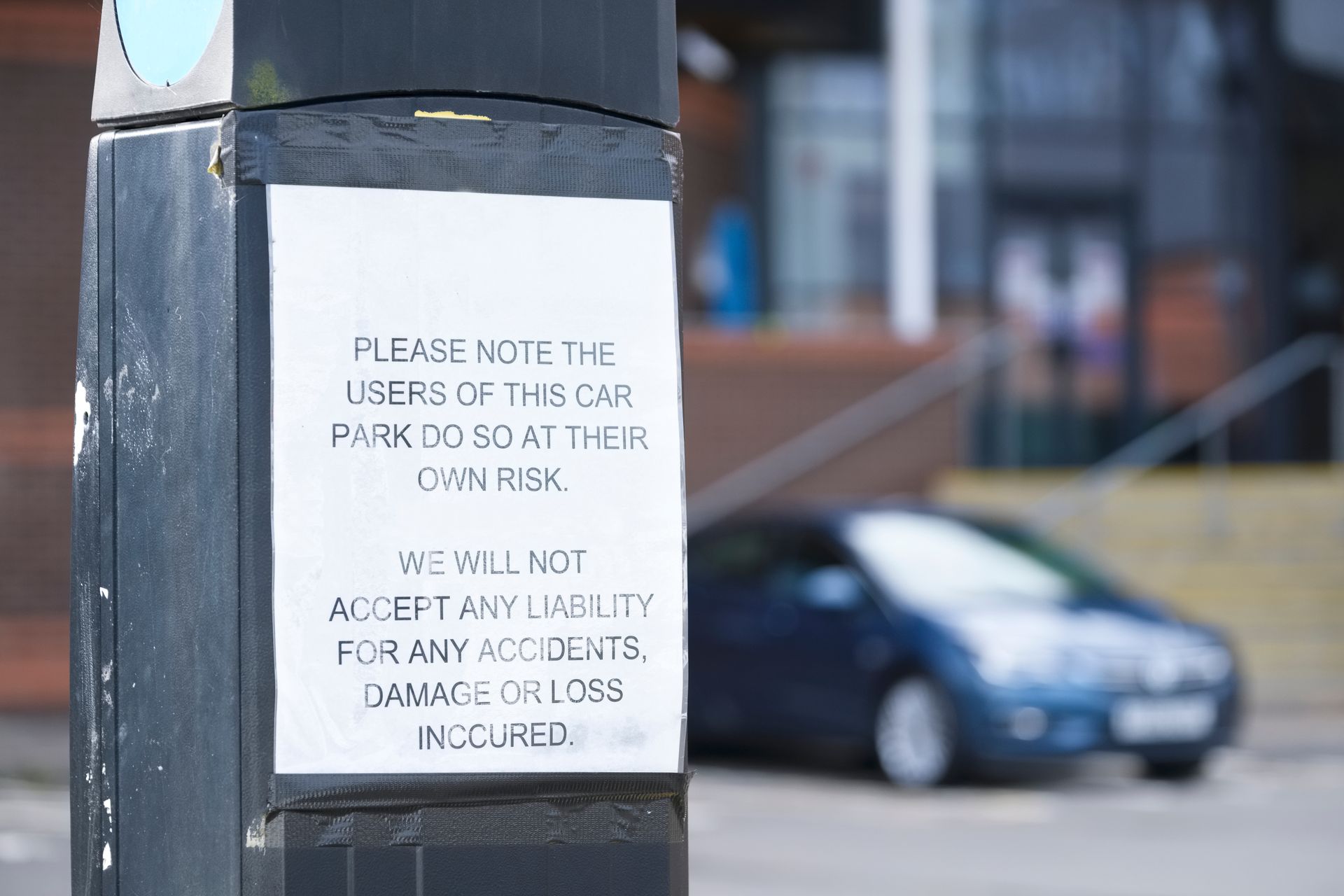Blog

When a customer is injured on your business property, your response can have lasting consequences. Beyond ensuring the individual receives appropriate attention, how you communicate and handle the claim can impact whether a lawsuit follows and how strong your defense is if one does. One of the most critical decisions you’ll face is whether to settle or fight the claim—and how to do so without admitting fault.
Immediate Steps After an Injury Occurs
Immediately after an injury occurs, your goal should be to provide appropriate assistance while protecting your business from unnecessary liability.
- Stay Calm and Professional – Reacting defensively or dismissively can escalate the situation. Maintain a neutral and courteous tone.
- Ensure Medical Attention if Needed – Call 911 for serious injuries. For minor injuries, offer to call medical assistance but do not insist if the claimant declines.
- Document Everything – Take photos of the location, gather witness statements, and complete an incident report. Keep records of any conversations regarding the incident.
- Avoid Speculation or Admissions – Do not say anything that could be interpreted as an admission of liability, such as “This was our fault” or “We should have fixed that.” Instead, focus on ensuring the claimant is safe and gathering facts.
- Notify Your Insurance Provider and Legal Team – Report the incident promptly and seek legal guidance before making further statements or decisions.
Deciding Whether to Settle an Injury Claim
Once a claim is made, businesses must decide whether to negotiate a settlement or contest the claim. This decision should be based on an analysis of legal exposure, financial risk, and business reputation.
Factors That May Influence Your Decision
Strength of the Claim
The strength of the claim is one of the most important factors to evaluate. If the business had clear liability—such as failing to address a known hazard—it may make settlement more appealing. However, if the claimant ignored warnings or engaged in reckless behavior, comparative negligence or assumption of risk defenses could weaken their case.
Cost of Litigation vs. Settlement
The cost of litigation versus settlement is another major consideration. Even with a strong defense, legal expenses can add up quickly, making a drawn-out legal battle more expensive than resolving the claim through settlement. Some cases may be dismissed early, but others may require significant resources to defend.
Reputation and Public Perception
Reputation and public perception can also influence the decision. High-profile cases or those involving serious injuries may attract media attention, which can harm the business’s reputation. A settlement with a confidentiality clause can help prevent negative publicity, while fighting a case in court means the details become public record.
Insurance Coverage and Future Premiums
Insurance coverage and future premiums should also be taken into account. Some liability policies cover settlements but may not fully cover litigation costs. Multiple settlements could lead to higher insurance premiums or make it more difficult to obtain coverage in the future. Additionally, insurers may have input on whether a case should be settled or fought based on policy terms.
Severity of the Injury and Potential Damages
The severity of the injury and potential damages play a role as well. Minor injuries are less likely to result in costly litigation or significant jury awards. However, more severe injuries—especially those resulting in permanent disability—can lead to substantial damages if the case goes to trial.
Precedent for Future Claims
Finally, businesses should consider the precedent a settlement might set for future claims. If a company regularly faces injury claims, settling too frequently can encourage frivolous lawsuits. On the other hand, fighting baseless claims can deter fraudulent or exaggerated cases in the future.
Can You Settle Without Admitting Fault?
Yes — settling a claim does not legally constitute an admission of fault.
Legal Protections in Settlements
- Most Settlement Agreements Explicitly Deny Liability – Businesses can require language in the agreement stating that the settlement is made to resolve the dispute efficiently, not as an acknowledgment of wrongdoing.
- Confidentiality Clauses – These can prevent the claimant from discussing the settlement, reducing the risk of public perception issues.
- Rule 408 of the Federal Rules of Evidence – This rule prevents settlements from being used as evidence of liability in future legal proceedings.
When Settlement Might Be Perceived as an Admission of Guilt
Despite legal protections, public perception matters:
- If a settlement is widely publicized, customers or competitors might assume the business was at fault.
- If a business repeatedly settles similar claims, it may appear as though it routinely accepts responsibility for injuries.
- Settling too quickly without investigation may send the message that the business didn’t want scrutiny.
How to Protect Your Business’s Reputation When Settling
- Control the Narrative – If asked, businesses can frame the settlement as a business decision rather than an admission (e.g., “We resolved the matter efficiently to avoid unnecessary legal expenses.”)
- Consider Structured Settlements – Payments over time may prevent the perception of a large lump sum payout.
- Ensure Proper Legal Documentation – Work with business liability defense attorneys to draft an agreement that reinforces that no fault is admitted.
Consult With an Experienced Atlanta Business Liability Law Firm
Businesses should think carefully about the legal, financial and reputational consequences before coming to a settlement decision. The experienced business defense lawyers at the Law Office of Cameron Hawkins are here to explain your options and provide advice. Call us at 678-921-4225 to request a consultation.
Law Office of Cameron Hawkins | All Rights Reserved
Areas of Practice
Contact Info
Disclaimer: The content on this website is for informational purposes only. This site and the information contained within is not legal advice, nor is it intended to be. Contacting the Law Office of Cameron Hawkins does not create an attorney-client relationship. Internet users should not act upon information contained on this site without first seeking advice from an attorney. Please refrain from sending any confidential information to The Law Office of Cameron Hawkins until an attorney-client relationship is established.
Disclaimer pursuant to Georgia Rule of Professional Conduct 7.1(a)(6): The statement "no attorneys' fees unless we are able to secure a verdict or settlement on your behalf" refers only to those fees charged by the attorney. Court costs and other additional expenses of legal actions usually must be paid by the client. Contingent fees are not permitted in all types of cases.











